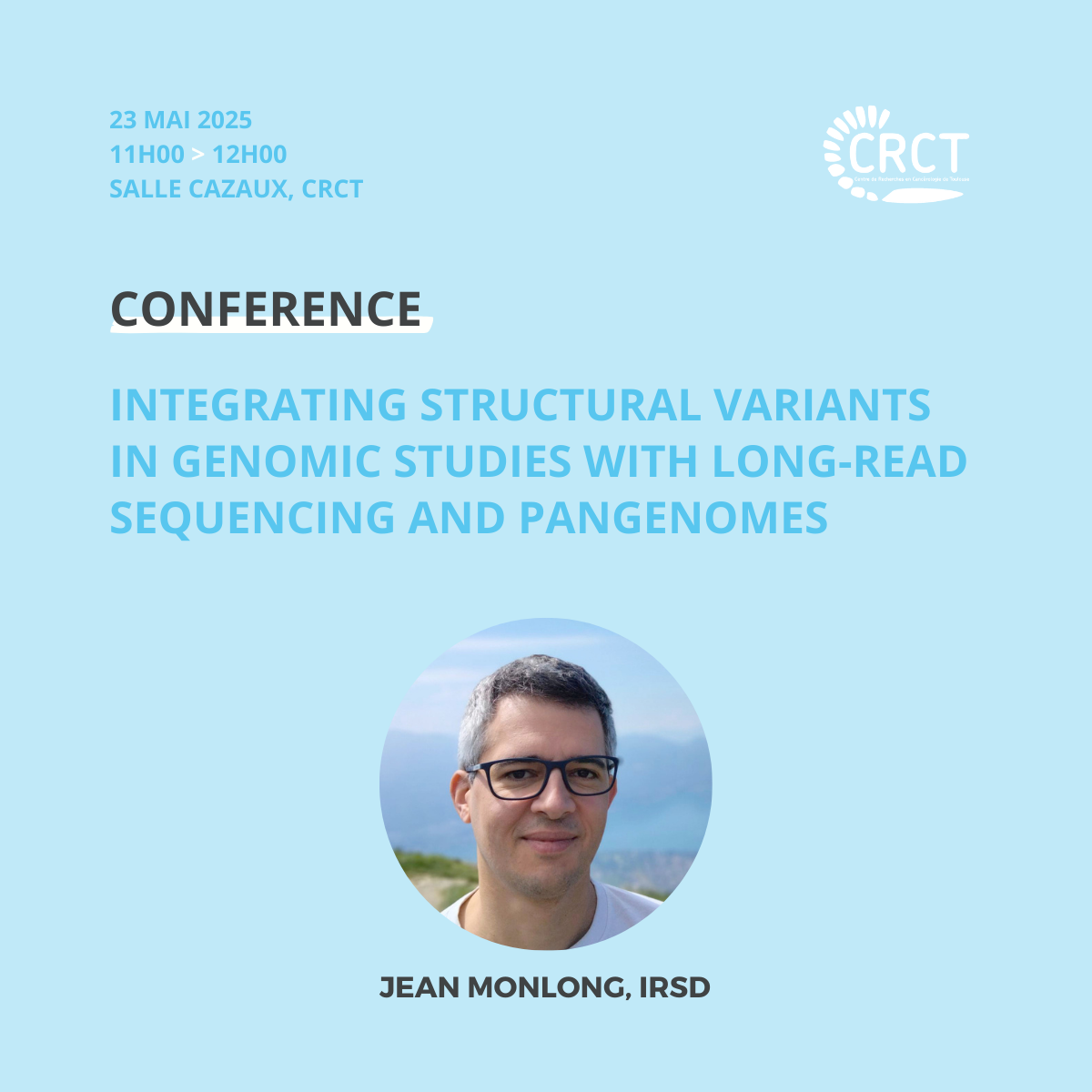
Bio:
Jean Monlong has been working with sequencing data for more than 10 years, first on transcriptomics as a master student in Barcelona at the Centre for Genomic Regulation with Roderic Guigo, then switching to genomics during his PhD at McGill University in Montreal with Guillaume Bourque. He then joined the University of California, Santa Cruz for his postdoc to work on variant calling with pangenomes in the group of Benedict Paten. Since 2023, Jean is a Chargé de Recherche INSERM at the Institut de Recherche en Santé Digestive (IRSD) where he continues using pangenomes and sequencing technologies to improve the analysis of human genomes and the functional interpretation of genomic variation.
Abstract:
Variant affecting more than 50 nucleotides, or structural variants, can have important functional impacts. They unfortunately tend to be understudied because of technical challenges hindering their detection. I will present two approaches to integrate those variants in genomic studies. The first uses pangenomes as augmented reference genome containing common variants (including structural variants). With this more complete reference, short sequencing reads are better analyzed, resulting in a larger number of structural variants that can be genotyped accurately. The second approach uses cost-efficient long read sequencing technology, such as Oxford Nanopore, to infer phased variants at unprecedented resolution.



